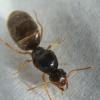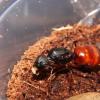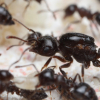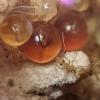- Formiculture.com
- Forums
- Gallery
- Members
- Member Map
- Chat

88 replies to this topic
#61
 Offline
-
Posted August 11 2021 - 6:28 AM
Offline
-
Posted August 11 2021 - 6:28 AM
You guys are forgetting that climate change is about to eff everything you're thinking in the face. If not for it I wouldn't be dealing with fire ants and Lone Star ticks in Canada. We have fricking possums now. Used to be too cold for them.
#62
 Offline
-
Posted August 11 2021 - 7:04 AM
Offline
-
Posted August 11 2021 - 7:04 AM
Just because some places are getting warmer doesnt mean all places are getting warmer, and will continue to do so. Experts have been wrong before *cough* covid *cough*. Can you be 100 percent sure there were never lone star ticks and possums where you were hundreds of years ago? I do not deny the climate is changing, but unless you have a Delorian and the Doc from Back to the Future, you cannot know the end result.
- TennesseeAnts likes this
Hi there! I went on a 6 month or so hiatus, in part due, and in part cause of the death of my colonies.
However, I went back to the Sierras, and restarted my collection, which is now as follows:
Aphaenogaster uinta, Camponotus vicinus, Camponotus modoc, Formica cf. aserva, Formica cf. micropthalma, Formica cf. manni, Formica subpolita, Formica cf. subaenescens, Lasius americanus, Manica invidia, Pogonomyrmex salinus, Pogonomyrmex sp. 1, Solenopsis validiuscula, & Solenopsis sp. 3 (new Sierra variant).
#63
 Offline
-
Posted August 11 2021 - 7:10 AM
Offline
-
Posted August 11 2021 - 7:10 AM
Yes. I can be sure. Lady Simcoe would have eaten a possum had there been one to eat a century ago, and the ticks have never been able to survive previous winters, causing a national alert for the first time ever in the last 24 months. People write stuff down, I don't need a Flux capacitor. I also have 40 years of climate memories to draw on. Permafrost is melting and the Innu are pissed, so yes, it is warming up here. We have new pests that previously lived far south of here.
Edited by mantisgal, August 11 2021 - 7:11 AM.
#64
 Offline
-
Posted August 11 2021 - 7:15 AM
Offline
-
Posted August 11 2021 - 7:15 AM
I meant before the arrival of Europeans... Should have been more specific. Like I said it is warming up there, and in many places, but we don't know what the end result will be.
- TennesseeAnts likes this
Hi there! I went on a 6 month or so hiatus, in part due, and in part cause of the death of my colonies.
However, I went back to the Sierras, and restarted my collection, which is now as follows:
Aphaenogaster uinta, Camponotus vicinus, Camponotus modoc, Formica cf. aserva, Formica cf. micropthalma, Formica cf. manni, Formica subpolita, Formica cf. subaenescens, Lasius americanus, Manica invidia, Pogonomyrmex salinus, Pogonomyrmex sp. 1, Solenopsis validiuscula, & Solenopsis sp. 3 (new Sierra variant).
#65
 Offline
-
Posted August 11 2021 - 8:09 AM
Offline
-
Posted August 11 2021 - 8:09 AM
I meant before the arrival of Europeans... Should have been more specific. Like I said it is warming up there, and in many places, but we don't know what the end result will be.
It's also nothing that we caused/can stop. I don't know why people are so panicked by climate change. Its been happening for billions of years- and will continue to happen long after we're gone. Some people have the illusion that the Earth's current form is final and nothing should be changing in their mind. They're wrong.
My Main Journal | My Neivamyrmex Journal | My Ant Adoption | My YouTube
Join the TennesseeAnts Discord Server! https://discord.gg/JbKwPgs
#66
 Offline
-
Posted August 11 2021 - 8:24 AM
Offline
-
Posted August 11 2021 - 8:24 AM
We're wandering a but off topic but it's worth noting a few things. There are geological records in sedimentation, glacial rocks, and ice cores - and paleological records in tree rings, corals, fossils. Well understood effects of climate change are shift of species' range north and southward, rising oceans, among other things measurably underway. Also, change is inevitable, of course, but the rapid changes being recorded now could have dire consequences for people on earth - and we can do something about it. Here's a good article from MIT https://climate.mit....-climate-change
I am trying to imagine Lady Simcoe's diary entry: "November 5 - We were gifted a rat-like creature called Possum from a merchant. Mary roasted it and garnished with leek and onion, delicious."
I think there are fine proposals in this thread for how best to keep ant species where they belong, but I don't think there is much political will or interest to pass something this complex in every (or any?) state. I think there are "best practices" we should all abide by mentioned throughout this forum, the most useful being don't ever release captive ants.
- Mdrogun, TestSubjectOne and futurebird like this
#67
 Offline
-
Posted August 11 2021 - 2:35 PM
Offline
-
Posted August 11 2021 - 2:35 PM
However, releasing the T. tsushimae from St. Louis in Chicago would be 100% legal.
But it's not. Pretty sure it was even posted in this thread that releasing ants is illegal under the same law that prevents you from bringing them across the state lines.
- TennesseeAnts and DDD101DDD like this
#68
 Offline
-
Posted August 11 2021 - 6:45 PM
Offline
-
Posted August 11 2021 - 6:45 PM
You guys are forgetting that climate change is about to eff everything you're thinking in the face. If not for it I wouldn't be dealing with fire ants and Lone Star ticks in Canada. We have fricking possums now. Used to be too cold for them.
That isn't something that will happen immediately. I will probably be LONG dead before it really changes anything.
I meant before the arrival of Europeans... Should have been more specific. Like I said it is warming up there, and in many places, but we don't know what the end result will be.
It's also nothing that we caused/can stop. I don't know why people are so panicked by climate change. Its been happening for billions of years- and will continue to happen long after we're gone. Some people have the illusion that the Earth's current form is final and nothing should be changing in their mind. They're wrong.
While I do believe that humans have contributed, I agree that it is overblown and that we won't be able to stop it.
Edited by Kaelwizard, August 11 2021 - 6:50 PM.
- TennesseeAnts likes this
#69
 Offline
-
Posted August 11 2021 - 7:05 PM
Offline
-
Posted August 11 2021 - 7:05 PM
Weird how you can keep novomessor cockrelli up here in nor cal where their not native to. I live 800 miles away from the az border and I can legally keep them smh. Same with acromyrmex versicolor. I fell like these would be considered as not native to my area if their 800 miles away but it’s legal for me to keep them for some reason.
Sent from my iPhone using Tapatalk
Sent from my iPhone using Tapatalk
#70
 Offline
-
Posted August 11 2021 - 7:14 PM
Offline
-
Posted August 11 2021 - 7:14 PM
Weird how you can keep novomessor cockrelli up here in nor cal where their not native to. I live 800 miles away from the az border and I can legally keep them smh. Same with acromyrmex versicolor. I fell like these would be considered as not native to my area if their 800 miles away but it’s legal for me to keep them for some reason.
Sent from my iPhone using Tapatalk
That is interesting... I assume if there are records located within the state border they are described as "Native". As far as i'm aware, they are very common In the lower Eastern parts of CA, with sightings of them scattered around the rest of SoCal.
Ants are Pets, not Pests.
-Camponotus sansabeanus
-Camponotus US-CA02
-Camponotus vicinus
-Formica podzolica
-Monomorium spp.
-Pogonomyrmex californicus
-Solenopsis spp.
#71
 Offline
-
Posted August 11 2021 - 7:59 PM
Offline
-
Posted August 11 2021 - 7:59 PM
There are currently 14,000 species of ants documented. It would take a large amount of knowledge to decide that even one of those species isn't a danger of becoming invasive when the possible results of a mistake would be billions of dollars in damage and the destruction of whole ecosystems. Meanwhile, many of these discovered species are virtually unstudied. Some of these unassuming ants, once moved to an alien environment, would spread and become an invasive species. It would only take a single person releasing a colony of the wrong ant in the wrong place to create the next Solenopsis invicta. Killing something that you have cared for for months or years is not an easy choice to make, and for many people a distant law or the relatively small danger of an ecological disaster is not enough to keep them from making the "humane" choice. As kounelus noted, pet owners release exotic animals all the time and many of those have established themselves as invasive species. Look at Burmese Pythons in Florida or invasive Koi around the world for examples of how much harm a released pet can do. With this in mind it is a given that we cannot completely lift the ban on exotic ants, and therefore the only way to allow access to exotics for keepers besides ensuring responsible containment through permits is selectively legalizing species like Pogonomyrmex occidentalis. And, as Cheeto noted, the ONLY species that has been deemed safe to transport this way still poses a risk of establishing itself as an invasive species. In my eyes, this is an argument against the legalization of transporting ants rather than for it. This shows that either it is very difficult to find a species that poses no threat of spreading, or that the legislators who would be handing selective legalization are incompetent. Or both. And even if a species is "incompatible" with local climates they still pose a risk of spreading to them. The reason that water-loving Linepithema humile has established in arid California and tropical Monomorium pharaonis lives virtually worldwide is that they are able to thrive in the disturbed ecosystems that we create and live in. This only increases the ways that exotic species can establish themselves. I personally believe that some species should be legalized if they can be confirmed without a doubt to not be a threat - but if it is done at all, it should be cautious to the extreme. If our hobby creates even one major invasive species by mistake we would be the cause of an incomprehensible amount of harm. As ant keepers we are able to appreciate the beauty of insect biodiversity in a way that most people can't, and thus should do our best to protect it rather than cause its destruction.
Edit: Corrected number of ant species. Thank you PurdueEntomology.
I think that you are forgetting something, primarily that every single existing invasive and tramp ant species on the planet was moved by non people in the plant and soil business. A great example is the Camponotus atriceps queen found in a banana in boston years ago. Not a single species has ever been released and successfully established by a hobbyist. Even if someone was to get a species established in a non native habitat, there's a good chance they would die out as there needs to ve a breeding population. Exceptions to this include inbreeding species like monomorium pharaonis, however they also only exist in greenhouses (going back to the whole "not keepers doing it" thing) and have absolutely 0 chance to establish outside of southern florida.
Ants are very unique animals, especially when studying the trade and potential for new invasive species to be introduced. There was a recent paper that calculated the "risk of invasives" in the ant trade, if someone can pull it up that would be great. The entire premise of the paper is that invasive ants being traded poses an extreme risk of new invasives, however the paper also completely neglects the fact that a 4 foot lizard or snake is a lot harder to let slip by than the hundreds of ants that are on every single ship.
The uniqueness of ants allows far, far more species and individuals to slip by on cargo whereas reptiles rarely go undetected on ships. What this means is that thousands more individuals and species are released every day around the globe than the entire hobby could ever intentionally import and release.
While I do agree that some restrictions are needed for antkeepers, I find the current US laws absolutely ridiculous.
Why are antkeepers being punished for the [censored] ups of ups, msc, maersk, and all of the other shipping companies that are actually capable of doing damage???
- TennesseeAnts and CheetoLord02 like this
Check out my Youtube!
https://www.youtube....ohUZtcyttLctSwA
I also have an Antstagram
https://www.instagra...otters_inverts/
#72
 Offline
-
Posted August 11 2021 - 8:25 PM
Offline
-
Posted August 11 2021 - 8:25 PM
It's also nothing that we caused/can stop. I don't know why people are so panicked by climate change. Its been happening for billions of years- and will continue to happen long after we're gone. Some people have the illusion that the Earth's current form is final and nothing should be changing in their mind. They're wrong.I meant before the arrival of Europeans... Should have been more specific. Like I said it is warming up there, and in many places, but we don't know what the end result will be.
https://xkcd.com/1732/
- kounelus and TestSubjectOne like this
Check out my Youtube!
https://www.youtube....ohUZtcyttLctSwA
I also have an Antstagram
https://www.instagra...otters_inverts/
#73
 Offline
-
Posted August 11 2021 - 8:32 PM
Offline
-
Posted August 11 2021 - 8:32 PM
That is interesting... I assume if there are records located within the state border they are described as "Native". As far as i'm aware, they are very common In the lower Eastern parts of CA, with sightings of them scattered around the rest of SoCal.Weird how you can keep novomessor cockrelli up here in nor cal where their not native to. I live 800 miles away from the az border and I can legally keep them smh. Same with acromyrmex versicolor. I fell like these would be considered as not native to my area if their 800 miles away but it’s legal for me to keep them for some reason.
Sent from my iPhone using Tapatalk
They exist in California in the same way that pogonomyrmex badius exist in the northeast. They are on the far, far southern tip so they technically count as existing here.
Novomessor have records in eastern/central socal and absolutely nowhere else from what I can see. Kadin is roughly the same distance from novomessor as I am from pogonomyrmex badius. Despite that fact, he can legally keep novomessor because they come from his state, while I would have to get a permit.
- CheetoLord02 and KadinB like this
Check out my Youtube!
https://www.youtube....ohUZtcyttLctSwA
I also have an Antstagram
https://www.instagra...otters_inverts/
#74
 Offline
-
Posted August 11 2021 - 10:50 PM
Offline
-
Posted August 11 2021 - 10:50 PM
I think that you are forgetting something, primarily that every single existing invasive and tramp ant species on the planet was moved by non people in the plant and soil business.
Shipping is a massive worldwide industry that has existed for hundreds of years, thousands in some forms. Antkeeping is a small/medium hobby that has been popular, in my understanding, for only a few decades at most. We haven't done any (known, large scale) harm yet because we are so small compared to them. That doesn't mean there isn't risk - the risk is small but the possible damage is huge.
Exceptions to this include inbreeding species like monomorium pharaonis, however they also only exist in greenhouses (going back to the whole "not keepers doing it" thing) and have absolutely 0 chance to establish outside of southern florida.
This is incorrect. I used Monomorium pharaonis as an example of ants that can adapt to a new climate because they are an immensely damaging pest worldwide including temperate regions due to their habit of living in heated buildings like houses and hospitals in particular.
The permit system exists so that people who want to keep exotic ants can as long as they show that they are willing to take measures to insure that their colonies are contained securely and that they will dispose of them responsibly. It is an ordeal, but in my opinion if someone isn't willing to put serious effort into containing their exotic colonies they shouldn't be entrusted with them. People like Max_Connor, who made a thread on this subject recently, come to mind. He argued that damaging invasive species like the Burmese Python in Florida aren't an issue as long as they don't harm humans directly and advocated for letting captive exotic colonies have nuptial flights. I don't think that an irresponsible keeper like him would worry much about releasing a colony that he doesn't want any more, or several of the same species if that was what was convenient. And this isn't taking into account that there would also be impulse buyers, literal children and more buying exotic ants. You can't expect these people, the most likely to get bored with their new pets, to know or care about laws against release or understand the consequences of such.
- Kaelwizard and MysticNanitic like this
TestSubjectOne's Experiences in Antkeeping General Journal
Currently Keeping:
- Veromessor pergandei (1 queen, 600 workers)
- Novomessor cockerelli (1 queen, 200 workers)
- Myrmecocystus mexicanus (1 queen, 100 workers)
- Brachymyrmex patagonicus (3 queens?, 2,000 workers? & alates)
- Crematogaster sp. (1 queen, 600 workers)
- Liometopum occidentale (1 queen, 800 workers)
- Camponotus absqualator (1 queen, 130 workers)
#75
 Offline
-
Posted August 12 2021 - 6:50 AM
Offline
-
Posted August 12 2021 - 6:50 AM
I agree with you haha. We’re both the same distance from them but it’s legal for me to keep them somehow. But not legal for you to keep them smh.They exist in California in the same way that pogonomyrmex badius exist in the northeast. They are on the far, far southern tip so they technically count as existing here.That is interesting... I assume if there are records located within the state border they are described as "Native". As far as i'm aware, they are very common In the lower Eastern parts of CA, with sightings of them scattered around the rest of SoCal.Weird how you can keep novomessor cockrelli up here in nor cal where their not native to. I live 800 miles away from the az border and I can legally keep them smh. Same with acromyrmex versicolor. I fell like these would be considered as not native to my area if their 800 miles away but it’s legal for me to keep them for some reason.
Sent from my iPhone using Tapatalk
Novomessor have records in eastern/central socal and absolutely nowhere else from what I can see. Kadin is roughly the same distance from novomessor as I am from pogonomyrmex badius. Despite that fact, he can legally keep novomessor because they come from his state, while I would have to get a permit.
Sent from my iPhone using Tapatalk
- PetsNotPests likes this
#76
 Offline
-
Posted August 12 2021 - 7:58 AM
Offline
-
Posted August 12 2021 - 7:58 AM
I think that you are forgetting something, primarily that every single existing invasive and tramp ant species on the planet was moved by non people in the plant and soil business.
Shipping is a massive worldwide industry that has existed for hundreds of years, thousands in some forms. Antkeeping is a small/medium hobby that has been popular, in my understanding, for only a few decades at most. We haven't done any (known, large scale) harm yet because we are so small compared to them. That doesn't mean there isn't risk - the risk is small but the possible damage is huge.
Exceptions to this include inbreeding species like monomorium pharaonis, however they also only exist in greenhouses (going back to the whole "not keepers doing it" thing) and have absolutely 0 chance to establish outside of southern florida.
This is incorrect. I used Monomorium pharaonis as an example of ants that can adapt to a new climate because they are an immensely damaging pest worldwide including temperate regions due to their habit of living in heated buildings like houses and hospitals in particular.
The permit system exists so that people who want to keep exotic ants can as long as they show that they are willing to take measures to insure that their colonies are contained securely and that they will dispose of them responsibly. It is an ordeal, but in my opinion if someone isn't willing to put serious effort into containing their exotic colonies they shouldn't be entrusted with them. People like Max_Connor, who made a thread on this subject recently, come to mind. He argued that damaging invasive species like the Burmese Python in Florida aren't an issue as long as they don't harm humans directly and advocated for letting captive exotic colonies have nuptial flights. I don't think that an irresponsible keeper like him would worry much about releasing a colony that he doesn't want any more, or several of the same species if that was what was convenient. And this isn't taking into account that there would also be impulse buyers, literal children and more buying exotic ants. You can't expect these people, the most likely to get bored with their new pets, to know or care about laws against release or understand the consequences of such.
At first I thought the concern was largely overblown, but that thread showed up and I don't know what to think anymore.
#77
 Offline
-
Posted August 12 2021 - 8:01 AM
Offline
-
Posted August 12 2021 - 8:01 AM
I think that you are forgetting something, primarily that every single existing invasive and tramp ant species on the planet was moved by non people in the plant and soil business.
Shipping is a massive worldwide industry that has existed for hundreds of years, thousands in some forms. Antkeeping is a small/medium hobby that has been popular, in my understanding, for only a few decades at most. We haven't done any (known, large scale) harm yet because we are so small compared to them. That doesn't mean there isn't risk - the risk is small but the possible damage is huge.
This is incorrect. I used Monomorium pharaonis as an example of ants that can adapt to a new climate because they are an immensely damaging pest worldwide including temperate regions due to their habit of living in heated buildings like houses and hospitals in particular.
Exceptions to this include inbreeding species like monomorium pharaonis, however they also only exist in greenhouses (going back to the whole "not keepers doing it" thing) and have absolutely 0 chance to establish outside of southern florida.
The permit system exists so that people who want to keep exotic ants can as long as they show that they are willing to take measures to insure that their colonies are contained securely and that they will dispose of them responsibly. It is an ordeal, but in my opinion if someone isn't willing to put serious effort into containing their exotic colonies they shouldn't be entrusted with them. People like Max_Connor, who made a thread on this subject recently, come to mind. He argued that damaging invasive species like the Burmese Python in Florida aren't an issue as long as they don't harm humans directly and advocated for letting captive exotic colonies have nuptial flights. I don't think that an irresponsible keeper like him would worry much about releasing a colony that he doesn't want any more, or several of the same species if that was what was convenient. And this isn't taking into account that there would also be impulse buyers, literal children and more buying exotic ants. You can't expect these people, the most likely to get bored with their new pets, to know or care about laws against release or understand the consequences of such.
You arent wrong about antkeeping being a small/medium hobby and only really existing for the last decade or two. What I am saying is that even if people intentionally bought and released ants for the purpose of releasing and establishing a new invasive population, 999 times out of 1000 the colony will die out within a month or two. Even if they did survive, most species require many colonies to keep up a good gene pool. Antkeepers simply don't have the resources to intentionally establish new species, it pretty much requires introduction after introduction in the same spot year on year until enough colonies exist for a stable breeding population to exist then spread.
Even releasing native species back into their own preferred habitat has an abysmally low success rate.
The potential for damage is huge, the risk of said damage occuring thanks to antkeepers is miniscule.
You are correct, I said greenhouse when I meant indoor introduced. However I would argue that it makes no difference as they can't live outside of relatively large buildings. They arent adapting to anything as they do the same thing in the tropics with the only difference being their trails have to be 100% inside the building for 6 months due to winter.
I actually have a permit, for pogonomyrmex californicus. Took 4 days to get my permit accepted and they have never bothered to stop in and check on how my ants or setup is doing. I don't disagree thag irresponsible people shouldn't be keeping them however I also don't think a blanket ban of any sort should legally be allowed to exist. The simple truth is that most species have 0 or close to 0 potential for harm and the ones that do have potential are painfully obvious from the first month of keeping them.
My last issue with permits is the whole legal adult thing. don't get me wrong I don't want 12 year olds getting permits, however I believe that people as young as 16 can be expected to be responsible. If they can drive a metal killing machine/deathbox (if used by an irresponsible driver) they can get a permit.
- TennesseeAnts, Kaelwizard, 11.11.00 and 4 others like this
Check out my Youtube!
https://www.youtube....ohUZtcyttLctSwA
I also have an Antstagram
https://www.instagra...otters_inverts/
#78
 Offline
-
Posted August 13 2021 - 12:31 AM
Offline
-
Posted August 13 2021 - 12:31 AM
There are currently 14,000 species of ants documented. It would take a large amount of knowledge to decide that even one of those species isn't a danger of becoming invasive when the possible results of a mistake would be billions of dollars in damage and the destruction of whole ecosystems. Meanwhile, many of these discovered species are virtually unstudied. Some of these unassuming ants, once moved to an alien environment, would spread and become an invasive species. It would only take a single person releasing a colony of the wrong ant in the wrong place to create the next Solenopsis invicta. Killing something that you have cared for for months or years is not an easy choice to make, and for many people a distant law or the relatively small danger of an ecological disaster is not enough to keep them from making the "humane" choice. As kounelus noted, pet owners release exotic animals all the time and many of those have established themselves as invasive species. Look at Burmese Pythons in Florida or invasive Koi around the world for examples of how much harm a released pet can do. With this in mind it is a given that we cannot completely lift the ban on exotic ants, and therefore the only way to allow access to exotics for keepers besides ensuring responsible containment through permits is selectively legalizing species like Pogonomyrmex occidentalis. And, as Cheeto noted, the ONLY species that has been deemed safe to transport this way still poses a risk of establishing itself as an invasive species. In my eyes, this is an argument against the legalization of transporting ants rather than for it. This shows that either it is very difficult to find a species that poses no threat of spreading, or that the legislators who would be handing selective legalization are incompetent. Or both. And even if a species is "incompatible" with local climates they still pose a risk of spreading to them. The reason that water-loving Linepithema humile has established in arid California and tropical Monomorium pharaonis lives virtually worldwide is that they are able to thrive in the disturbed ecosystems that we create and live in. This only increases the ways that exotic species can establish themselves. I personally believe that some species should be legalized if they can be confirmed without a doubt to not be a threat - but if it is done at all, it should be cautious to the extreme. If our hobby creates even one major invasive species by mistake we would be the cause of an incomprehensible amount of harm. As ant keepers we are able to appreciate the beauty of insect biodiversity in a way that most people can't, and thus should do our best to protect it rather than cause its destruction.
Edit: Corrected number of ant species. Thank you PurdueEntomology.
I think that you are forgetting something, primarily that every single existing invasive and tramp ant species on the planet was moved by non people in the plant and soil business. A great example is the Camponotus atriceps queen found in a banana in boston years ago. Not a single species has ever been released and successfully established by a hobbyist. Even if someone was to get a species established in a non native habitat, there's a good chance they would die out as there needs to ve a breeding population. Exceptions to this include inbreeding species like monomorium pharaonis, however they also only exist in greenhouses (going back to the whole "not keepers doing it" thing) and have absolutely 0 chance to establish outside of southern florida.
Ants are very unique animals, especially when studying the trade and potential for new invasive species to be introduced. There was a recent paper that calculated the "risk of invasives" in the ant trade, if someone can pull it up that would be great. The entire premise of the paper is that invasive ants being traded poses an extreme risk of new invasives, however the paper also completely neglects the fact that a 4 foot lizard or snake is a lot harder to let slip by than the hundreds of ants that are on every single ship.
The uniqueness of ants allows far, far more species and individuals to slip by on cargo whereas reptiles rarely go undetected on ships. What this means is that thousands more individuals and species are released every day around the globe than the entire hobby could ever intentionally import and release.
While I do agree that some restrictions are needed for antkeepers, I find the current US laws absolutely ridiculous.
Why are antkeepers being punished for the [censored] ups of ups, msc, maersk, and all of the other shipping companies that are actually capable of doing damage???
Something I think that doesn't get mentioned often in these threads is the assumption there will be only 1 single instance of a species released in an area. I think that ignores the fact that certain species would be more popular, easier to collect/sell, and will probably be bought/imported from a limited number of dealers. Who would probably sell multiple colonies of the same species. Like if most people in America could buy Australian ants, I think there would be 1 or 2 species that would be the most desired. Just like when people sell ants from the Americas there are a few species that are the most popular/desired.
Now is the chance high that a species becomes established. No. But once they get established you can't really get rid of them. So I think there should be some kind of system in place to make sure that a few years of new ant keepers don't watch AC and think they want to keep x species that he highlighted, rush out to buy them, then get bored/overwhelmed and let them go as they've seen AC do multiple times.
- futurebird likes this
#79
 Offline
-
Posted August 13 2021 - 4:22 AM
Offline
-
Posted August 13 2021 - 4:22 AM
I think that not releasing is even more important than I thought after this topic. Your little colony isn't going to be enough to rebuild if it's a native sp that isn't doing well... but so many things could go wrong. Or your ants might not be correctly identified.
Releasing ants is just too high risk low reward.
Possible exceptions might be: putting a wild caught colony back where you found it.
releasing a local sp. in an ant depleted urban area... but even then.
Feed them until they die off or freeze them. It's sad but responsible. I do wish popular ant people would model this.
Starting this July I'm posting videos of my ants every week on youTube.
I like to make relaxing videos that capture the joy of watching ants.
If that sounds like your kind of thing... follow me >here<.
#80
 Offline
-
Posted August 13 2021 - 8:50 AM
Offline
-
Posted August 13 2021 - 8:50 AM
Well, my biggest beef with current ant law is still, as I stated, the fact that if an ant is native to the state you wish to bring them into, you cannot. If you can take ants from Brownsville to, for example, to Dallas, then I say you should be able to take a common species like Camponotus modoc, or Lasius americanus, from a state like CA, to a state like Utah, where both are native. And like I mentioned before, and as Otter did, a sizable genepool must be existent, aside from species such as M. pharonis for it to become established. There are FAR MORE destructive species, like the housecat, that are allowed to be taken across state lines. Cats escape, and we don't ban people from keeping cats because they can escape... And the likelyhood of a cat causing damage is so much greater than even numerous ant colonies.
Realistically, unless an antkeeper is elected to Congress, or becomes a bigwig government bureaucrat in the Department of Agriculture, these changes probably won't occur.
Realistically, unless an antkeeper is elected to Congress, or becomes a bigwig government bureaucrat in the Department of Agriculture, these changes probably won't occur.
- TennesseeAnts likes this
Hi there! I went on a 6 month or so hiatus, in part due, and in part cause of the death of my colonies.
However, I went back to the Sierras, and restarted my collection, which is now as follows:
Aphaenogaster uinta, Camponotus vicinus, Camponotus modoc, Formica cf. aserva, Formica cf. micropthalma, Formica cf. manni, Formica subpolita, Formica cf. subaenescens, Lasius americanus, Manica invidia, Pogonomyrmex salinus, Pogonomyrmex sp. 1, Solenopsis validiuscula, & Solenopsis sp. 3 (new Sierra variant).
Also tagged with one or more of these keywords: legal, law, laws, ant law
Ant Keeping →
General Ant Keeping →
WaKooshi Exotic AntsStarted by jushi , May 9 2020 |
|

|
||
Ants & Myrmecology →
General →
Where to Start a Petition?Started by TennesseeAnts , Oct 26 2019 |
|
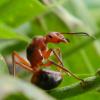
|
||
Market Place →
General Market Place →
Ant Keeping & the Law (USA)Started by Miles , May 10 2019 |
|
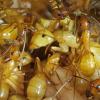
|
||
Ant Keeping →
General Ant Keeping →
Shipping ants from EU to Canada - legal or not?Started by skocko76 , Oct 31 2018 |
|
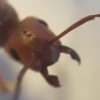
|
1 user(s) are reading this topic
0 members, 1 guests, 0 anonymous users



